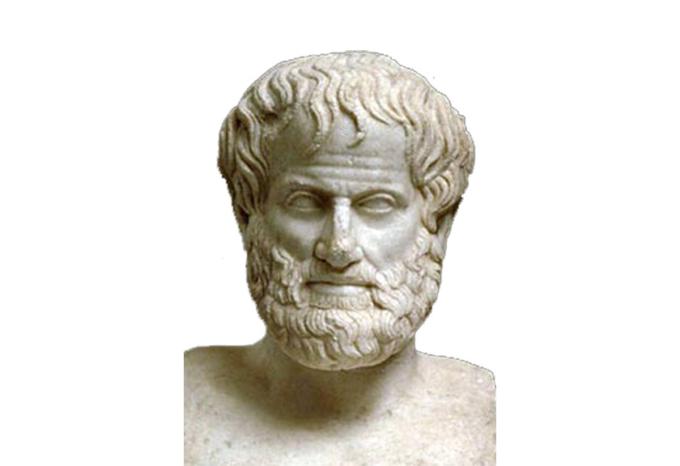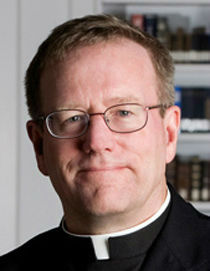
Spirituality
The modern person instinctually says, "Who are you to tell me what to do?" or "Who are you to set limits to my freedom?" And the Catholic instinctually says, "Order your freedom to an objective truth that makes you the person you are meant to be."

Barron
One of the most significant fault lines in Western culture opened up in the 16th and 17th centuries, when what we now know as the "modern" world separated itself from the classical and medieval worlds. The thinking of Descartes, Spinoza, Leibniz, Kant, Newton, Jefferson, and many others represented a sea change in the way Western people looked at practically everything. In almost every telling of the story, this development is presented as an unmitigated good. I rather emphatically do not subscribe to this interpretation. It would be foolish indeed not to see that tremendous advances, especially in the arenas of science and politics, took place because of the modern turn, but it would be even more foolish to hold that modernity did not represent, in many other ways, a severe declension from what came before. This decline is particularly apparent in the areas of the arts and ethics, and I believe that there is an important similarity in the manner in which those two disciplines went bad in the modern period.
Classical philosophy and science sought to understand things in terms of Aristotle's four causes: material (what something is made of), formal (a thing's essential structure), efficient (how it got the way it is), and final (its purpose or destiny). The founders of modernity became suspicious of our capacity to know form (for things seem to be in constant flux) and finality (for it just wasn't clear where the universe was going). Accordingly, they put a great stress on the remaining two Aristotelian causes, the material and the efficient. And this is precisely why the distinctively modern sciences -- with their exclusive focus on what things are made of and how they got in their present state of being -- developed the way they did.
But this elimination of formal and final causality and the hyper-stress on material and efficient causality had profound effects outside of the physical sciences. A classical sculptor, painter, or architect was trying to imitate the forms that he found in nature, and thereby to create something objectively beautiful. It is by no means accidental, for instance, that architects from the classical period through the High Renaissance designed buildings that mimicked the dimensions and features of the human body. One reason that Michelangelo's architecture is so deeply satisfying to us is that it was grounded in that artist's particularly profound grasp of the body's rhythms and proportions. Thomas Aquinas defined art as "recta ratio factibilium" (right reason in regard to the making of things), and the rectitude he had in mind was none other than an understanding of the forms that God had already placed in nature. But a modern artist, unconvinced that objective form ought to provide a norm for her work, tends to see art as the objectification of subjectivity. The self-expression of the artist -- the efficient cause of the work, if you will -- is more important than any conformity of that work to a formal norm. This approach was beautifully and succinctly summed up by the Dadaist painter Marcel Duchamp: "Whatever an artist spits out is art." With that statement, we have reached the polar opposite of "recta ratio factibilium."
The marginalizing of final causality had a deep and deleterious effect on the way moderns tend to think about morality. Classical moral thinkers -- from Plato and Aristotle to Augustine and Thomas Aquinas -- considered the ethical act in terms of its purpose or finality. What made an act good was its orientation toward its proper end. Thus, since the end of the speech act is the enunciation of the truth, speaking a lie is morally problematic, and since the end of a political act is the enactment of justice, unjust legislating is unethical, etc. If art is "recta ratio factibilium," then ethics, for Aquinas, is "recta ratio agibilium" (right reason in regard to action), the rectitude of the reason in this context coming from conformity to finality. But with final causality relegated to the margins, morality became a matter of self-expression and self-creation. The extreme instance of this attitude can be found in the writings of Friedrich Nietzsche and Jean-Paul Sartre. The 19th-century German Nietzsche opined that the supreme morality -- beyond good and evil -- was the ecstatic self-assertion of the superman, and the 20th-century Frenchman Sartre held that the "authentic" person is the one who acts in accord with his or her own deepest instincts. Sartre famously argued that existence (unfettered freedom) precedes essence (who or what a person becomes). And that is the polar opposite of a "recta ratio agibilium" ordered to objective finality.
If you think that all of this seems hopelessly obscure and irrelevant to the contemporary situation, then think again. Even the most radical ideas of the moderns in regard to morality have trickled down, through a network of professors, teachers, script writers, television personalities, singers, bloggers, etc. to reach the ordinary person today. And this, I would submit, is what makes the Catholic position on ethics so hard to understand. The modern person instinctually says, "Who are you to tell me what to do?" or "Who are you to set limits to my freedom?" And the Catholic instinctually says, "Order your freedom to an objective truth that makes you the person you are meant to be."
It would be the stuff of another chapter to explore, even with relative adequacy, the manner in which this dilemma might be resolved, but might I suggest that the fundamental problem with modern ethics (as with modern art, generally speaking) is that it is boring. The self-asserting and self-expressing ego never really gets anywhere, never breaks out of its own clean, well-lighted space. But the human subject, enraptured by the objective good, sets out on a journey away from the narrow confines of the self and becomes an Adventurer.
- Bishop Robert Barron is the founder of the global ministry, Word on Fire, and is Bishop of the Diocese of Winona-Rochester.
Recent articles in the Spirituality section
-
Pushed off the platformMichael Pakaluk
-
Advice to fathersMichael Pakaluk
-
The higher you go liturgically, the lower you should go in service of the poorBishop Robert Barron
-
The Easter Season is the fleshly seasonMichael Pakaluk
-
Ripley and RupnikEffie Caldarola





